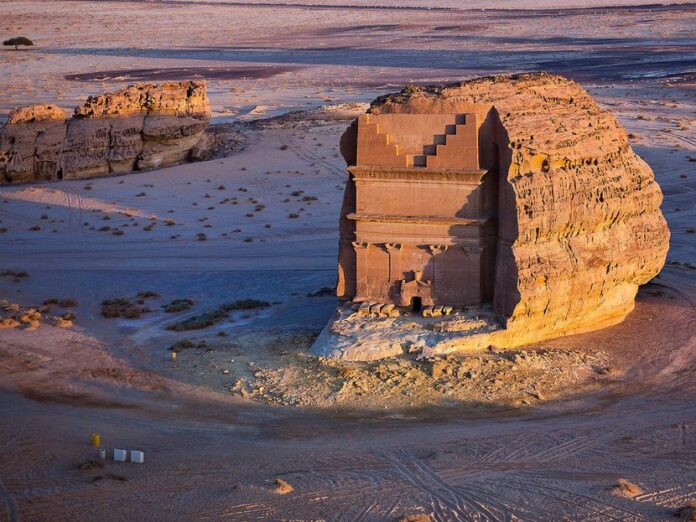RIYADH: AlUla, the leisure and cultural destination being created in the Saudi Arabian heartland, is looking to attract foreign and private sector investors to help fund the ambitious $15 billion first stage of the project, CEO Amr Al-Madani told Arab News.
“The equation is simple. Our opening program is a $15 billion package, including community and social programs such as schools, hospitals, and education. We are committed to fund as long as we need to, but we have great economics in place and some of the funds are reaching out to us. We hope to become a viable outlet for some of their funds,” he said.
Amr Al-Madani
So far, the project has been funded to the extent of $2 billion by the Royal Commission for AlUla, but the move to seek private funding, from Saudi or international investors, marks a departure for AlUla.
Al-Madani put the total cost of the development at between $20 billion and $30 billion.
He was speaking on the sidelines of the FII 2021 forum in Riyadh, where much of the conversation among leading Saudi and global business people has been on the need to attract foreign direct investment into the Kingdom.
Earlier in the week, the biggest investment fund in the world, the $10-trillion BlackRock group, agreed to help the Kingdom’s National Development Fund raise and manage a SR200 billion ($53 billion) fund to finance big infrastructure projects in the Kingdom as part of the Vision 2030 strategy of diversification.
At FII, AlUla signed a partnership with Aecom, the American infrastructure consulting firm, to accelerate the first phase of the project, along with a consortium of French companies.
“We are on our way to realizing AlUla as a journey through time and a place to visit when it comes to culture globally. Partnerships are the way to doing this. We celebrated this by engaging some of the top, most innovative companies in the world, that believe in our values and in the importance of eco-system regeneration and local community development and sensible development. We only want to work with those that believe in our vision.”
The historical legacy of AlUla goes back thousands of years, when the oasis became the home of the Nabatean culture and eventually a trade hub in the Arabian Peninsula.
Al-Madani said there was no conflict between the project’s ambitions to preserve and enhance its historical legacy, and the commercial development that will see upmarket tourism become a core feature in the development.

